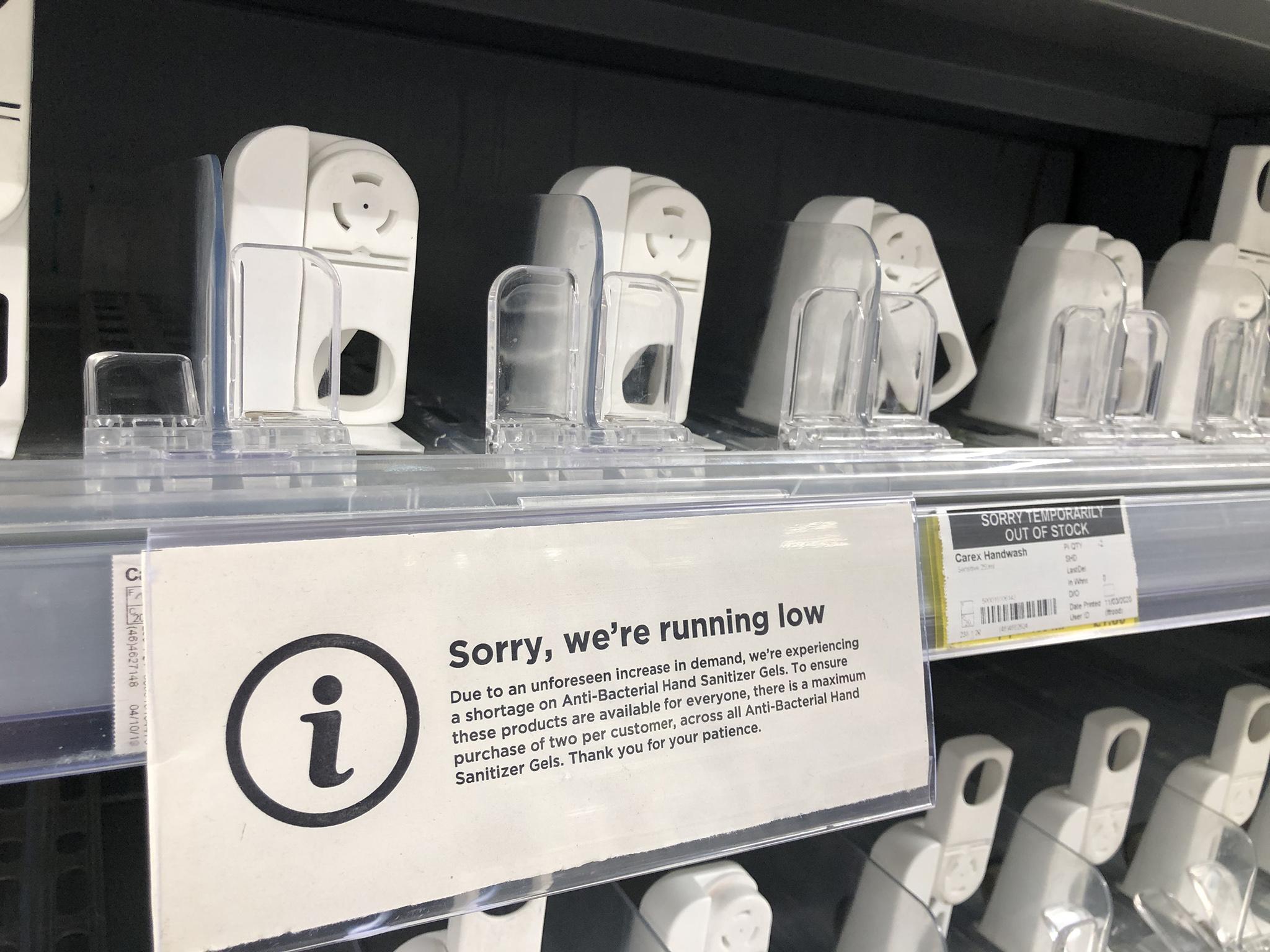Coronavirus: The real reason supermarket shelves are empty
It looks like stores are running out – but the issue isn’t with supply, writes James Moore


The public’s response to the Covid-19 outbreak has led to Britain’s supermarkets generating the sort revenues they see only during the pre-Christmas rush, in the final week before the big day.
But there’s a crucial difference in the business mix. Whereas they tend to sell a smaller amount of pricey, high-margin items over the festive period, right now they’re shifting much higher volumes of low-margin items.
Their shelves have been denuded of cans of beans, bags of pasta and, of course, loo roll and hand sanitiser.
It isn’t because of a shortage of stock. There’s just a ceiling on how much can be moved from suppliers to warehouses and from warehouses to stores.
This is what has led to all those pictures of bare shelves with just the one forlorn-looking can of low-salt own-brand baked beans that you’ve been seeing on social media of late.
Checking in with one of the big supermarkets I was told that, yes, the supply chains continue to be operating well and there’s no shortage of product. To the contrary.
But there are, for example, only so many people who have the necessary licences to drive the big trucks needed to shift it.
Add in the fact of self-isolation – which exacerbates the grocers’ capacity crunch – and those pictures are the result.
The problem for the supermarkets is that they further fuel panic buying. They act as a spur that motivates the people that see them to head to their local store to stock up themselves, further exacerbating the crunch.
They imply that there’s a shortage when there isn’t.
Another spur to the mass outbreak of panic buying is provided by government announcements.
Every time the advice is updated, and a fresh batch of emergency measures are taken, people rush to the shops, scoop up everything they can, and post more pictures of empty shelves on Facebook and Twitter.
If at this point you were thinking “vicious circle”, well, I wouldn’t blame you.
Supermarkets are understandably reluctant to limit what people can buy because their job is to sell stuff and customers will get annoyed if they’re told they can’t get what they want.
This is still, remember, an ultra-competitive industry that makes strenuous efforts to keep shoppers sweet.
However, I’m told that there’s an industry-wide initiative on its way that could address this, with an announcement possibly coming later this week.
I’m also told that ministers and officials are in fairly regular contact with the industry, but they’re still at the stage of asking questions as opposed to, you know, making decisions and doing things.
One question I asked is whether the industry could expect to take a hit to revenues at the other end of this through customers drowning down their stockpiles.
If you’ve bought 10 bags of pasta, you’re probably not going to be inclined to buy more until you’ve eaten what you’ve got when things have settled down. This is an obvious possibility.
But the supermarkets aren’t sure. The Covid-19 crisis may have naturally increased sales because people aren’t going out so much. This is uncharted territory for them, just as it is for all of us.
This is a sector that nonetheless should come through this better than most, although the benefits of the sales surge to the bottom line mightn’t be as much as you’d think.
Workers are mostly being paid to self-isolate (as they should be) but this imposes a cost upon their employers. They’re having to pay out a lot of overtime right now.
Join our commenting forum
Join thought-provoking conversations, follow other Independent readers and see their replies
Comments